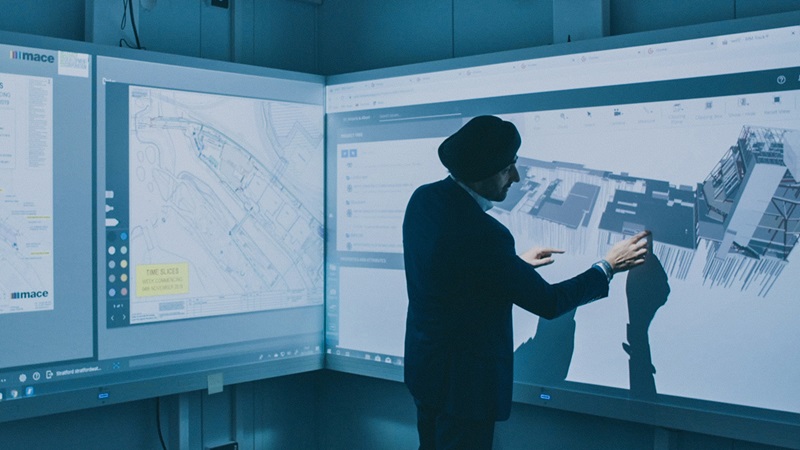
Delivering transformative innovation, improving productivity, and helping deliver projects more effectively via Project Controls rooms. More such innovative initiatives would be welcome by the capital projects industry.
Mace has won £1.6m in funding to develop the concept of project control rooms that harness live data feeds to improve the management and delivery of complex projects and programmes.
Mace, alongside partners UCL, Imperial College London, 3D Repo, Mission Room and eviFile, has won the funding from Innovate UK for the demonstrator project called the “AEC Production Control Room”.
The two-year project started in May 2020 and promises to blend academic insight and private sector delivery experience. Mace will lead and co-ordinate the project.
The demonstrator project is one of nine that have been announced as the next tranche of innovation funding delivered through the government’s Construction Sector Deal.
It aims to help UK construction clients and contractors to be more efficient and proactive rather than reactive, with a scalable and repeatable ‘plug-and-play’ construction management and reporting platform.
Backed by I3P, the project team are currently in discussions with a number of the UK’s largest infrastructure clients to introduce the concept onto their projects to enhance visibility and oversight. The new concept fits closely with a full ‘Project 13’ approach to delivering projects and programmes, enabling ‘integrators’ to act more effectively.
Mark Reynolds, Mace group chief executive, said: “The Construction Sector Deal was designed to help the sector deliver transformative innovation, improving productivity and helping us deliver projects more effectively. This is a fantastic example of innovation funding doing exactly that.
“The project control room concept has the potential to improve decision-making through real-time visibility of data while delivering complex projects, something that could be transformative in the future. I look forward to working with our fantastic partners over the next two years to bring this concept to life.”